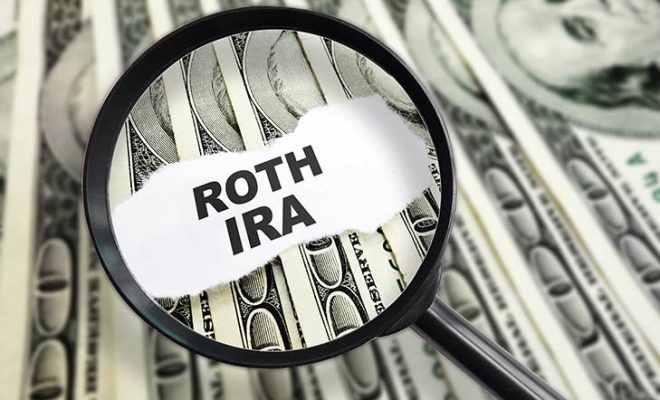Can I Contribute to a Roth IRA Without Earned Income?

Roth Individual Retirement Accounts (IRAs) have become an increasingly popular retirement account due to their numerous advantages, such as tax benefits, flexibility, and the absence of required minimum distributions (RMDs). Unlike traditional IRAs, Roth IRAs are funded with after-tax dollars, allowing for tax-free earnings and withdrawals during retirement (subject to conditions). Roth IRAs are an attractive choice, especially for people who expect to be in a higher tax bracket in their retirement years. While many people understand the benefits of a Roth IRA, there are certain rules concerning Roth IRA contributions that one should be aware of, especially concerning earned income.
A Roth IRA necessitates earned income in order for you to make contributions. However, it is important to clarify what earned income for a Roth IRA means, and whether or not you can contribute to a Roth IRA without it.
If you’re unsure of navigating the rules governing a Roth IRA, consider consulting with a professional financial advisor who can advise you on the pros and cons of investing in one, its contribution limits, and more. This article explores the earned income requirement for Roth IRAs, its significance, potential consequences of non-compliance, and strategies to ensure you meet the specified criteria for the same.
What qualifies as earned income for Roth IRA contributions?
The IRS defines the Roth IRA earned income requirement as the taxable income or compensation you receive from a paying job. It can originate from being employed or running a business.
Several types of income fall under the umbrella of earned income, namely:
1. Wages, salaries, and tips
This constitutes the income you receive through a job, whether you work full-time, part-time, or have temporary work. For example, if Mr. A, a software engineer, earns a salary, that is his earned income.
2. Bonuses
This includes additional monetary compensation over and above the standard salary or wage. For instance, if Mr. A’s employer gives him an annual performance bonus, that would also count as earned income.
3. Professional fees
Payments received for providing a professional service also qualify as earned income. Suppose Mr. A does freelance work in addition to his day job; the fees he earns from his freelance work would also be considered earned income.
4. Self-employment income
If you own a business or work as a freelancer, your net earnings constitute your earned income. Here, it is important to accurately calculate your net earnings to determine your earned income for Roth IRA contribution purposes.
5. Long-term disability benefits
In some cases, people may receive long-term disability benefits due to their inability to work. These benefits provide financial support and can be considered as earned income for Roth IRA contributions. Note that this only applies to long-term disability benefits received prior to reaching the minimum retirement age.
6. Taxable alimony or other maintenance received under a divorce decree
Taxable alimony or other maintenance payments received under a divorce decree are also considered as earned income for Roth IRA contribution purposes. However, it’s important to distinguish between taxable and non-taxable alimony payments, as only the taxable portion qualifies as earned income.
7. Non-taxable combat pay
Combat pay refers to the additional compensation received by military personnel deployed in designated combat zones. Members of the U.S. military who receive non-taxable combat pay can also contribute to a Roth IRA as it is considered as earned income.
8. Taxable non-tuition and stipend payments
Certain taxable non-tuition and stipend payments can qualify as earned income for Roth IRA contributions. These payments may include taxable grants, scholarships, fellowships, or stipends received for specific purposes such as research, teaching, or training.
Also see: 6 Reasons Your Retirement Plan Might Change and How to Prepare For it
SPONSORED WISERADVISOR
What doesn’t qualify as earned income for Roth IRA contributions?
While the definition of earned income is broad, the IRS explicitly excludes certain types of income from this category. These include:
1. Interest and dividends from investments
The IRS distinguishes between earned income and investment income which includes income from interest, dividends, or capital gains generated from investments, such as stocks, bonds, mutual funds, or savings accounts. Since these earnings are not a direct result of active participation in employment, they are not considered as earned income.
2. Pensions or annuities
Although pensions and annuities are valuable sources of income for retirees, they are not considered earned income because they do not result from direct employment or active participation in the workforce.
3. Social Security benefits
While Social Security benefits are a significant income source for many retirees, the IRS does not count these benefits as earned income.
4. Unemployment benefits
Unemployment benefits that provide individuals with income during a period of joblessness do not qualify as earned income. This is because the funds received from unemployment benefits do not come from actively engaging in work or providing services.
One notable exception to the Roth IRA earned income requirement is the Spousal Roth IRA. This provision allows a spouse with earned income to fund a Roth IRA for their spouse without earned income. The couple must file their taxes jointly to avail themselves of this provision. The working spouse can contribute up to the maximum limit for themselves and their non-working spouse. If the couple meets the income limit guidelines, they can contribute a sum of $13,000 annually in 2023 ($6,500 per person) or $15,000 if they are aged 50 or older (provided they have earned income equal to or exceeding their total contribution).
How to meet the Roth IRA earned income requirement
To fulfill the Roth IRA earned income requirement, it is crucial to understand the distinction between earned and unearned income. Monitoring your income sources is also essential to meet the eligibility criteria. Furthermore, keeping track of any policy changes is essential for maintaining compliance because government policies can affect income thresholds and contribution limits.
Lastly, involving a trusted financial advisor can be beneficial when navigating the complexities of Roth IRA requirements. A qualified professional can provide personalized guidance based on your unique financial situation and goals. They can help maximize contributions and stay up-to-date with any changes that may impact your eligibility.
What are the penalties for contributing to a Roth IRA without earned income?
Meeting the Roth IRA earned income requirement is not just a recommendation but an obligation. Failure to do so can result in severe penalties from the IRS. When an individual contributes to a Roth IRA without meeting the earned income requirement, the IRS imposes a 6% excess contribution penalty on the amount contributed. This penalty applies each year until the excess contribution is corrected. It is important to rectify any excess contributions as soon as they are identified to avoid penalties.
The IRS provides a grace period until the tax filing deadline to correct excess contributions without incurring a penalty. If you discover the mistake after this date, you can remove the excess contributions and the earnings on those contributions. However, in this case, you’ll have to pay income tax on the earnings and possibly a 10% early withdrawal penalty.
Roth IRA contribution limits based on your filing status
The contribution limits for Roth IRAs are determined by your Modified Adjusted Gross Income (MAGI), which the IRS adjusts annually to accommodate inflation. These limits can affect your ability to contribute to your Roth IRA.
Filing Status: Single, Head of Household, or Married Filing Separately (and did not live with the spouse at any time during the year)
| MAGI | Contribution Limit |
| Less than $138,000 | $6,500 or $7,500 (age 50 or older)/your AGI, whichever is less |
| Between $138,000 and $153,000 | Contribution limit is reduced |
| $153,000 or more | Individuals are ineligible to contribute to a Roth IRA |
Filing Status: Married Filing Separately (and lived with the spouse at any time during the year)
| MAGI | Contribution Limit |
| Less than $10,000 | Contribution limit is reduced |
| $10,000 or more | Individuals are ineligible to contribute to a Roth IRA |
Filing Status: Married Filing Jointly or Qualified Widow(er)
| MAGI | Contribution Limit |
| Less than $218,000 | $6,000 or $7,000 (age 50 or older)/your AGI, whichever is less |
| Between $218,000 and $228,000 | Contribution limit is reduced |
| $228,000 or more | Individuals are ineligible to contribute to a Roth IRA |
If you find yourself ineligible to contribute to a Roth IRA due to these limits, consider alternative options to obtain tax advantages like traditional IRAs or employer-sponsored 401(k)s. Additionally, self-employed individuals or those earning income from side jobs can establish a Simplified Employee Pension IRA (SEP-IRA), even if they participate in a 401(k) program through their employer.
Also see: 401k and IRA 2023 Contribution Limits
To conclude
Understanding the intricacies of Roth IRAs, particularly the earned income requirement, is essential to maximize the benefits of this retirement account. Regularly monitoring income levels, promptly rectifying any excess contributions, and involving a trusted financial advisor are some of the strategies that you can employ to make the most of Roth IRA contributions. Use the free advisor match service to match with experienced financial advisors who can guide you effectively on Roth IRAs, their contribution limits, and what constitutes earned income. Answer a few questions based on your financial needs, and the match tool will help connect you with 1-3 financial advisors that may be suited to help you.











